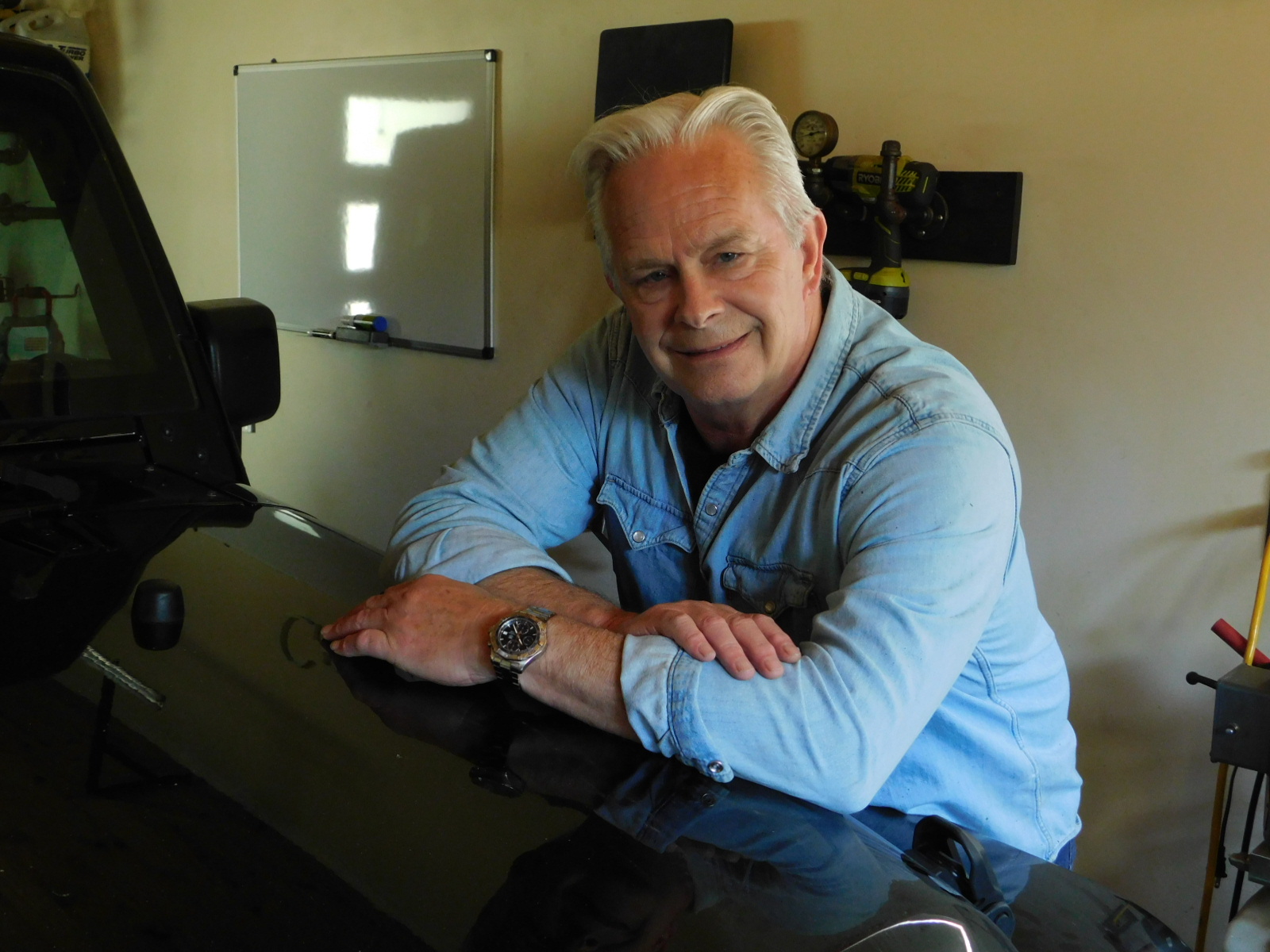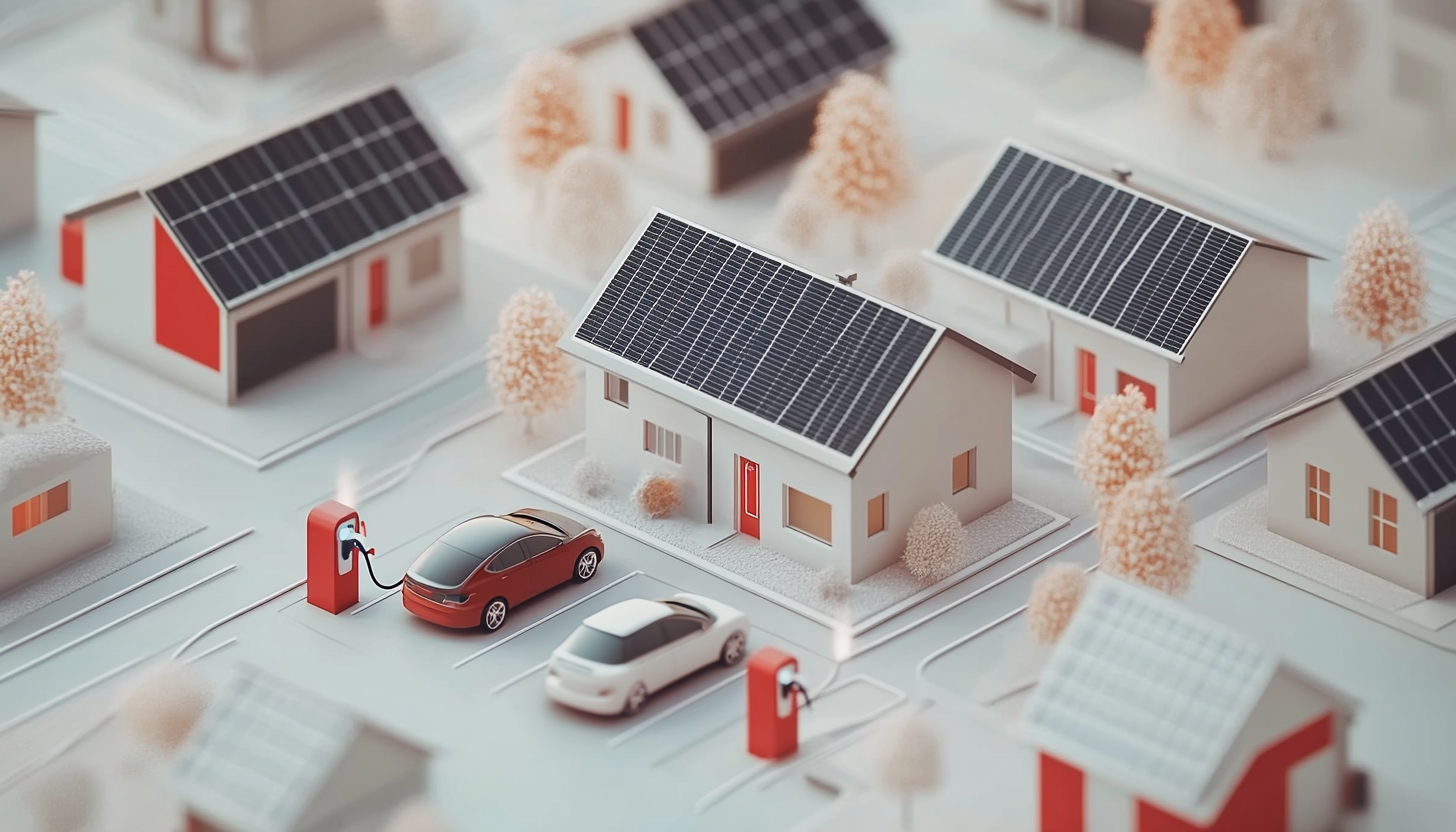
If you are not redirected within 30 seconds, please click here to continue.
Samedi: 10h – 16h HAE

If you are not redirected within 30 seconds, please click here to continue.
If you are not redirected within 30 seconds, please click here to continue.
Ask an Auto Expert: CarQuestions.ca’s Mark Whinton on the future of EVs
Ask an Auto Expert is a regular column where Mark Whinton, automotive expert and owner of the CarQuestions Youtube channel dives into what’s going on in the world of car repair and auto insurance. Reach out to us at media@rates.ca.
Mark Whinton knows the ins and outs of the auto industry – both as a licensed automotive service technician since 1982 and as an independent auto insurance forensic investigator for some of Canada’s best-known insurers. He’s also a go-to car advice guy through the CarQuestions Youtube channel, which has amassed over 56k subscribers over the past 17 years.
We got a chance to sit down with him and ask him about what’s going on in the turbulent world of electric vehicles (EVs), from tariff-driven manufacturing pauses to the insurance impact of denting a lithium-ion battery.
Turns out, despite the rocky conditions surrounding the eco-friendly auto, he’s pretty optimistic about its future – going as far as to say it’s only a matter of time before Chinese EV manufacturers set up their plants in Ontario.
This Q&A is released as part of a larger report on electric vehicle ownership in Canada, conducted in partnership with Leger.
This article has been edited for length and clarity. Watch the full video interview at CarQuestions.
Can you set the table for us and give us a sense of what the state of the EV industry in Canada is like right now?
Well, the EV industry in Canada now is growing, has been for years and is still on the upswing. There's no two ways about this. People are adopting electric vehicles and in increasing numbers. They're not going down. It's the fastest growing segment in the car market in North America and pretty much the rest of the world. It's about 16% up in North America, higher in Europe, in Asia. It's way up.
I think that's pretty much my opinion of it. The current administration in the United States, is not favoring electrical vehicles. They've cut back on chargers, charging system installations and all those kinds of things.
And we've cut back our rebates in Canada. That stuff will come back. When? Who knows – A few years, a couple months.
Hard to say, but the adoption of electric vehicles is still increasing even without the rebates. This reminds me a lot of the 1970’s.
Some readers will remember this. We went from oil in our houses to gas in about ten years. The same thing is going to happen with EVs.
What other hurdles need to be overcome to strengthen the EV market?
There’s going to be a lot of problems associated with this transition. One of them will be electricity. The supply of it. We don't have enough power. If tomorrow, magically, we were all driving EVs and we had to plug them in, there would be a blackout. We don’t have that kind of power.
But governments are currently investing in maintaining and expanding their electrical supply. But I think demand for these things will outstrip the ability for the governments to supply electricity and that's going to cause them troubles.
There’s also the charging range and capability. You have to stop for an hour to charge your car. That's not 10 minutes. It's an hour.
If you’re going to the cottage, or going to visit grandma and she lives in Pictou, Nova Scotia or something. And she doesn't have a charger. It takes five minutes to put 70 liters of gas in your car. And it takes hours to charge your car. With a quick charge, maybe an hour. Battery technology is improving, so we'll see if that number goes down half an hour, 15 minutes.
Lastly, right now the cars are kind of expensive, but they are making cheaper ones. China, of course, is a big problem for North American car manufacturers.
Tesla has been dogged by scandals over the last two months. If there was a dip in support for Tesla, would that sway the general attitude towards EVs in Canada?
No, I don't think so. The same thing that’s happening in Canada us happening in the rest of the world. Tesla cars sales are crashing.
I don't know how long that company can hang on when you get an 80% drop in sales in [Sweden] and around 46% in Germany. You get numbers like that, and you're not in business. That company cannot survive. Their model lineup is kind of old, except for one of the newer models. And in Canada, the Teslas we were getting were made in China. We have 100% tariff on those things. So, you're not getting a Tesla in Canada any time that's cheap.
People are just running away from that product as fast as they can, and there's no reason not to, because there's all kinds of choices. Tesla is not going to survive this.
It just can't unless they pull a rabbit out of the hat — they change the CEO, Elon's not running the company anymore, they refresh their product line and they get more competitive, but it's going to be really tough to beat the oncoming challenges.
How is the uncertainty around Tesla and EVs going to impact the insurance market? Is it going to be harder to find replacement parts of these cars?
As far as the car repair stuff goes, the cars are kind of simple. They don't have a lot of parts, so they don't require all the maintenance that a regular internal combustion engine vehicle (ICE) would have. These cars still need tires and brakes and windshield wipers and that kind of thing, but for the most part, they're trouble-free cars compared to an ICE car. The brakes on them are pretty standard, used industry wide and shared with multiple companies.
So, if that company goes out of business, it doesn't matter. Somebody else has parts for it. If I bought a Tesla tomorrow and it went out of business a year from now, I wouldn't worry about it because I know there's going to be people in the aftermarket making replacement parts for a long, long time.
That’s the brakes – but would damage to the batteries could result in more write-offs?
There are fewer parts, but they’re way more expensive. I could drive my car down a major highway in Canada and come across a stick, a rock or something and I drive over it. It bangs the bottom of my car. Maybe it dented a muffler, maybe it just dented some shields, some plastic. But if you do that in an electric car, the entire bottom of it is a battery. And if you dent that, that's a $20,000 problem. And that’s happened. When you dent the bottom of that battery tray — and that's where the battery is, the whole bottom of it, between the wheels — if you do that, no matter where you dent it, that's gonna be a battery replacement.
Maybe it's a Porsche. Maybe it's a Land Rover. You know, some expensive vehicle? It's going to be hellish. I would expect that those claims are rising for reasons that never affected an ICE car.
Read more: What to do if your electric vehicle breaks down on the road
As more EVs hit the roads, how much of an influence will these write-offs have on insurance costs overall in the industry?
Only time will tell with that. There might be some offsetting factors like advanced driving systems where the cars are braking for you and that kind of thing. The insurance claims overall could go down with the theft rate. These cars are harder to steal for one thing. They should be getting involved less in accidents — but when they do get involved in accidents, I'd expect the claim cost to be higher.
Over the past few years, Ontario has emerged as a manufacturing capital for EV batteries. How are the tariffs going to impact the distribution of EVs across Canada and North America?
It's huge, the effect of these tariffs right now. For EV battery production, all this stuff is on hold. It's stopped. But it will resume.
We are the Detroit of the north. We have been for years. We've had an auto pact with the U.S. since 1965. The current US administration would like that to end. You've heard the phrase, “We don't need your cars.”
Well, that's all well and good, but we'll see if that strategy works. But in the global economy that we have today, it's not manufacturing, it's service based. And nobody on Earth can change it back to manufacturing solely.
If you're a parts supplier like Magna, you’re looking 10, 20 years out, and are asking, ‘Where are we going to be?’
They're going to build those battery plants here next to their biggest market, which is the U.S. They will build those plants here. You don't see car companies putting up new plants. They just cost too much. Two, three, four or five billion dollars. They take five to 10 years to set up and supply. They work on a 10- to 20-year timeline, and you cannot change that overnight.
Right now, everything's on hold. It’s in the middle of a turmoil. But everybody sees it as temporary. Even Jim Farley, the CEO of Ford is saying we’re looking at that three years [that the tariffs will last]. They're hoping they can outlast the changing government, and global trade will continue as it was, or something close to it.
I would expect that we will still be making ICE cars and electric vehicles in Canada. Not just the batteries. Companies like General Motors, Stellantis and Tesla may not be around in this market in a few years because of China and all the threats they face. But they will be replaced by those companies. Those companies will be here. Geely. Chery. BYD. Those will be common names, and you'll see them in Canada.
Read more: Electric vehicle repair: what are your options?
By 2035, according to the Liberal government mandates, all new vehicles sold in Canada must be zero emission vehicles. How realistic is this goal?
That number is a shifting goal post around the world. But after the dust settles and we get through this tariff dispute, and we get back to normal global trade levels, I think that is doable. There’s going to be a challenge down the road transitioning everybody from gas to electric because you'll need a lot of electricians.
We just simply don't have them, or the necessary power grid. But we have done it in the past. If it's a simple choice of buying a car — between choosing an EV and an ICE — I think that's way easier than changing out your furnace.
Don't waste time calling around for auto insurance
Use RATESDOTCA to shop around, and compare multiple quotes at the same time.
Get money-saving tips in your inbox.
Stay on top of personal finance tips from our money experts!










